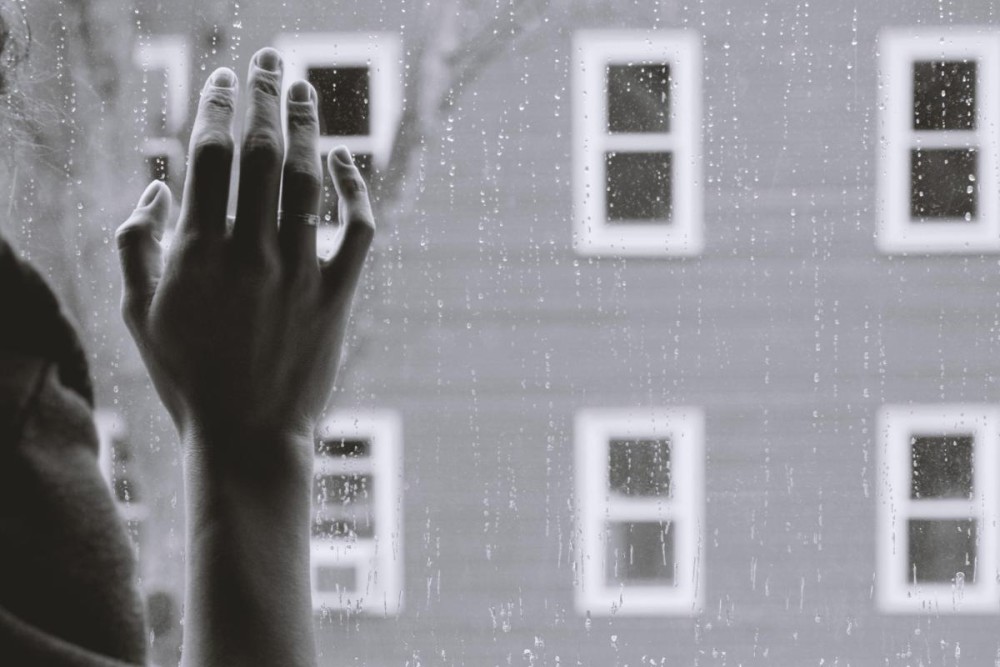How To Support Rangatahi After A Crisis
News | February 3rd, 2023

Adolescents (9 - 13) are especially vulnerable during and after a crisis. They are old enough to know what is happening, but they do not yet have the life experience to deal with their emotions.
After events like the Auckland Flood, it can be difficult to know how to help young people process how they are feeling.
A crisis can threaten the safety and wellbeing of our loved ones. Therefore, you may be concerned about how to respond. At times like these, parents, caregivers, mentors and youth themselves can feel overwhelmed - but there are ways we can work together as a community to help each other.
Here's how you can support rangatahi after a crisis (like the Auckland Flooding)
In Short…
- Listen. Listen well. Listen without criticism.
- Let them express their feelings openly - whatever they may be.
- Acknowledge the pain and hardship, without overdramatising it.
- Show interest in their story, ask open-ended questions that invite them to talk freely and honestly, without judgement.
- Offer your support - it’s important that they don’t feel alone or isolated.
- Offer to help find the support they need (e.g. by calling Upside)
- Help them to picture, and to work towards, a brighter future.
- Always show warmth, affection, reassurance, and positivity.
- Look after yourself too.
In Depth…
1. Listen.
- In times of crisis, it is important to listen to youth, to really listen - and without judgment or criticism. It's important for young people to know that others care about them and will listen with empathy and understanding when they need help processing difficult emotions or experiences.
- Let them know that it's okay for them to feel whatever emotion(s) come up during the conversation - whether it be sadness, anger, fear, etc.
- Talk about what it was like during their Auckland Flood experience, what it was like for you, your family, and others in the community by using words such as sadness/hurt/anger/fear, etc., rather than "bad" things that happened during this time period because these emotions are normal reactions when people experience such events together as communities (for example floods).
- It may have been a very dramatic time for them, it is advisable to keep the “drama” on the down low. The goal is to help them accept the past and find the positive motivation to move forward.
2. Be interested in their story.
- As a parent, caregiver, or youth mentor you are probably familiar with the feeling of wanting to help but not knowing how. You might feel like there's nothing you can do except listen as your young person shares what is going on in their life.
- This is actually one of the most powerful things you can do for them at a time of crisis: listening attentively and asking open-ended questions will help them feel heard and understood.
- Asking about their feelings and experiences also helps us learn more about what they are going through so we can better understand it ourselves--and then use this understanding to support our rangatahi when they need it most!
3. Offer help.
In a crisis, it's important that youth feel supported by their friends and family members.
- Offer your time, energy and resources by asking what you can do to make a difference to support them in their lives right now.
- You might not be able to solve all of their problems or make everything better--but simply listening can go a long way toward making them feel better about themselves and their situation. (i.e., "I know there are some great organisations out there; let me look into them for you").
4. Encourage them to get help.
- Encourage them to get help. It's important for you to be supportive and understanding when a young person is going through a tough time, but it's also important not to ignore the possibility that they may be suffering from more emotional damage than you realise.
- If you suspect a young person might have depression, anxiety or another mental health issue, following a crisis, we encourage you to seek professional help from a therapist or doctor.
- If you're unsure where or how exactly you should go about finding help for their situation (or even if they just need some guidance), Healthnavigator.org.nz have a great resource to get started with young people's mental health in mind.
5. Give them the opportunity to ask questions.
When it comes to supporting youth in crisis, there are a few things you should keep in mind:
- Ask open-ended questions. Don't ask leading questions or give answers you think they want to hear. Instead, try asking something like "what's going on?" or "how do you feel about ……?"
- This will help them reflect on their feelings and experiences without feeling pressured into responding in a certain way.
6. Plan for the future & keep them busy
- Dream and plan together, and discuss with the young person what you will do as soon as normality is established. Talk about starting fresh, trying different foods or games, creating new memories, etc. This is especially important if they have lost treasured possessions like photos, keepsakes, even their phone which is a lifeline to them.
- Encourage your young person to help* others in any way they can, whether it's helping out at a local shelter or donating clothes or toys for children who have lost theirs in the floodwaters.
- In times of distress, seeing others in need can remind us how fortunate we are, and what we have been given by our family, friends, and communities.
- Activities such as games, art (painting), music (playing an instrument), sports, reading books/magazines/newspapers - anything that keeps their mind off things while doing something constructive - are all good ways to pass time during a crisis or trauma situation such as this one has caused throughout many parts of Auckland!
*Make it clear however to do this with adult guidance and with their own safety in mind.
7. Talking with someone can help you work through a crisis or trauma without feeling alone
If you, a caregiver or adult, have also been through the crisis, don’t forget about your own wellbeing. You can’t take care of everyone if you haven’t had a chance to process what effect it has had on you.
Stresses can run high, especially with an uncertain future. Talking with someone can help you work through a crisis or trauma without feeling alone. Talking about your feelings helps you feel better, and there are many people who will listen to what you have to say. There are many places where counsellors are ready and willing to help out and many of them are free of charge, if you do not have anyone in your life who can provide this kind of support.
8. Relieve the stress with hugs…lots of them
Hugs are a great way to show support. They can help you feel better and the person you are giving the hug to. Hugs are known to release Oxytocin, a hormone that makes you feel loved, and cortisol, which is known as the stress hormone.

9. Provide opportunities for children to feel in control and make decisions
A natural disaster like the Auckland Flood of January 2023 was something beyond our control. Therefore it is important to provide opportunities for them to regain control of their lives in small ways. This is especially important if they have lost something/someone important to them during the crisis. This might mean letting them decide what activities to do, what to watch on tv, or allowing them to decide whether they want dessert after dinner!
Conclusion
Our community has a role to play in supporting our young people during and after a crisis. Youth can benefit from listening, providing information and resources, and advocating for those who need additional support. In addition, it is important to show warmth, affection, reassurance, and help them process their feelings.
If you need help with your young person and you are a mentor with Upside Youth Mentoring, please contact your Mentoring Coordinator. The Upside Team or external sources as listed above should be contacted if whānau have concerns about their child's wellbeing post-crisis. Also talk to your school if you have any concerns about your child, they may be able to refer you to get further support.
Photo by Kristina Tripkovic on Unsplash | Photo by Anastasia Vityukova on Unsplash